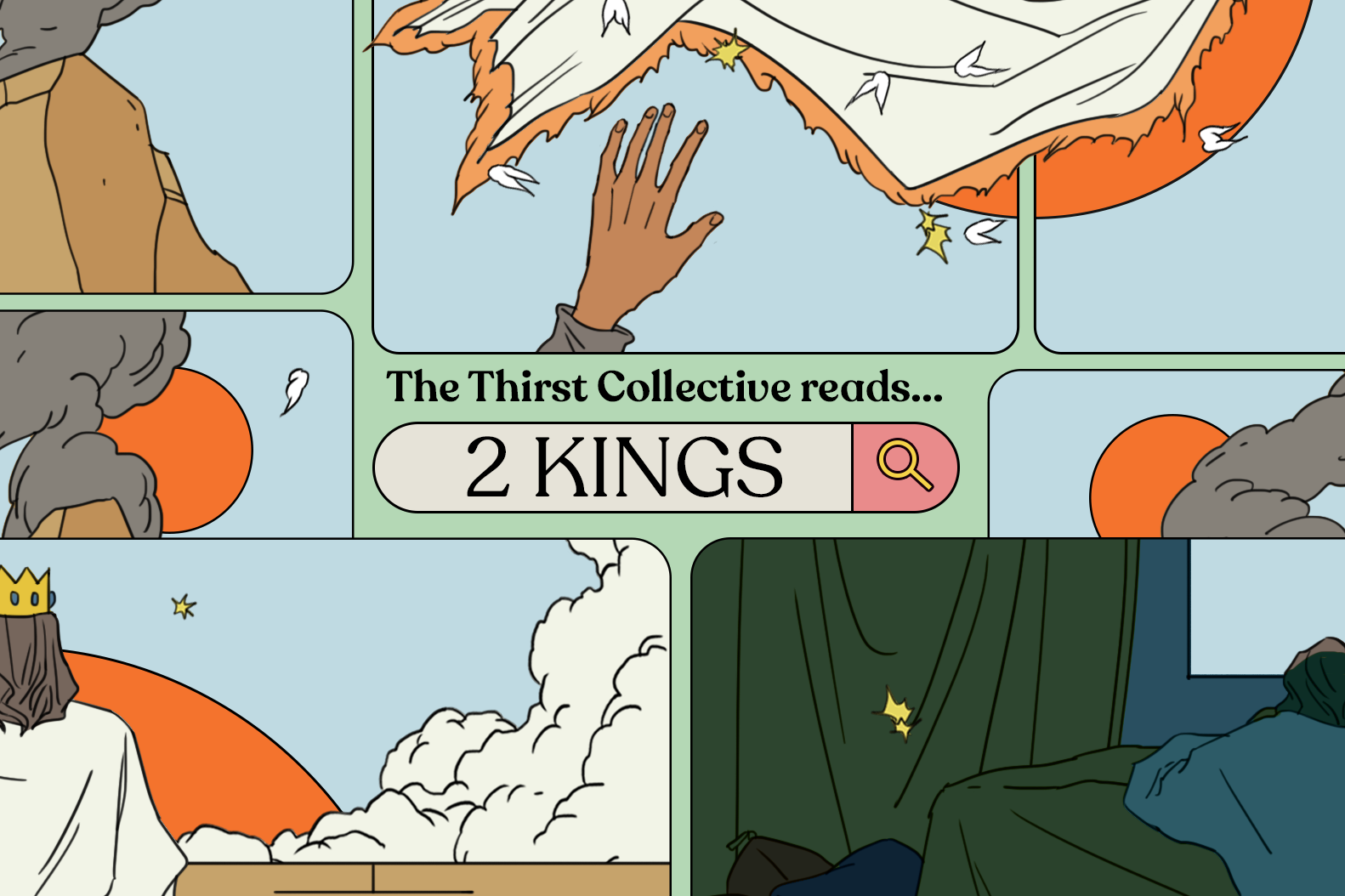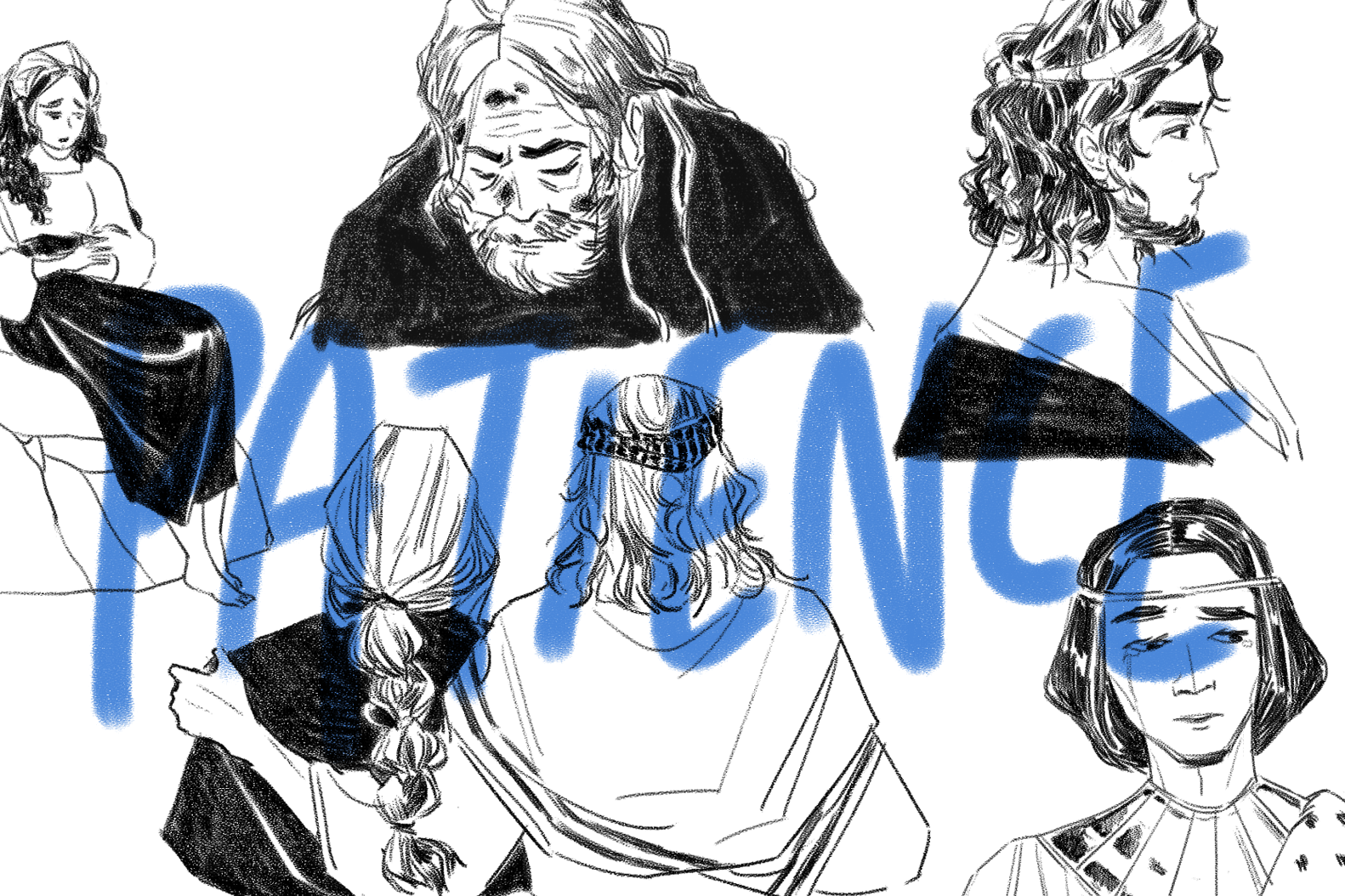There has been a lot of hype recently about Marie Kondo and her “does it spark joy?” movement. Being someone who also likes to keep things tidy and neat, I concur with her that decluttering is the way to go.
We need to make space for things that are important and worthwhile, and this can only be achieved when we bid goodbye to other lingering things that have built up dust and grime in our lives over a prolonged period of time.
Along with this theme of throwing away things that we don’t need or are taking up unnecessary space, Mark’s account of how a man called Blind Bartimaeus received his sight caught my attention. Particularly in verse 50, it says that Bartimaeus threw aside his cloak and jumped to his feet when Jesus took note of him and called him to come over (Mark 10:50).
“As Jesus and his disciples, together with a large crowd, were leaving the city, a blind man, Bartimaeus (which means ‘son of Timaeus’), was sitting by the roadside begging. When he heard that it was Jesus of Nazareth, he began to shout, ‘Jesus, Son of David, have mercy on me!’
“… Jesus stopped and said, ‘Call him.’
“So they called to the blind man, “Cheer up! On your feet! He’s calling you.” Throwing his cloak aside, he jumped to his feet and came to Jesus.” (Mark 10:46-47, 49-50)
Throwing aside one’s cloak might seem insignificant to us, but historical context shows that this cloak Bartimaeus was wearing was probably a government-issued one to provide legitimacy to beggars, similar to a licence for them to beg and collect alms.
To look at it in another way, the cloak may have given Bartimaeus his “right” to beg, and probably protected him from the elements – but it was also this cloak that sealed his identity as a beggar.
And if we dig a little deeper, we’ll notice quite early on that Bartimeaus isn’t really much of a name – it just means “son of Timaeus”. He was just “someone’s son”, yet another identity put on him by others that spoke nothing of his significance as an individual, unique person.
He was just Bartimaeus the beggar – the man with no name or anything to his name.
Like Bartimaeus, we all have “cloaks” that identify or associate us with a particular stereotype, struggle, social standing or even future. Using myself as an example, I used to believe that I was “lesser than” because I came from a neighbourhood school.
For a period of time, I hated going to school because the school uniform that I wore made me feel kind of “condemned” to a “lesser than” future – stereotypical thinking I’d unconsciously adopted with regards to most students who don’t make it to elite schools with their grades or talents.
But unlike Bartimaeus, many times the “cloaks” that we wear are not given by others, but by ourselves. When we sin and fall short of God’s glory (Romans 3:23), the sense of guilt and condemnation can overwhelm us to the point that we sometimes believe that we are beyond Christ’s saving.
When wading through a prolonged period of singleness or barrenness, or just unanswered prayer, we entertain the devil’s lies that we are “not good enough”, and in the process find ourselves trapped in debilitating insecurities because we have lost our God-given identity.
As I examined myself, it shook me to realise how deep-seated and common the issue of (misplaced) identity is. The truth is, all of us struggle with identity. Since the fall of man in Genesis 3, when sin broke us away from oneness with God, the fight to restore our lost identity in Him has continued ever since – but how many of us are actually in this fight to throw off our old “cloaks”?
THE IDENTITY THAT SPARKS JOY
Thankfully, on this side of eternity, before the second coming of Christ, we have already been given a new set of “garments” that truly spark joy. Isaiah 61 tells us what some of these garments are.
- The garment of praise instead of a spirit of despair (Isaiah 61:3)
- The garments of salvation and the robe of righteousness (Isaiah 61:10)
It comforts me to know that in Him, I have a choice of which garments I want to wear. No longer am I a Blind Bartimaeus resigned to the cloak that identifies me as a beggar or someone unworthy, unclean, or just unable to walk in freedom from something I’ve done, something that’s happened to me, or even something in my background such as the family I come from.
Because of Jesus, I am no longer a slave to any of these things, and most importantly, to sin. I don’t have to be. Conversely, I am a precious child of God, bought and redeemed with the precious blood of Christ. I am who He says I am.
Am I able to throw off the familiar cloaks of identity I’ve worn for so much of my life in order to put on these new garments of identity?
The restoration of my once-lost identify means now I can approach the throne of grace with confidence (Hebrews 4:16) and trust my Saviour to meet all my needs through Him. What joy, hope, security and courage this should give us.
I love how the prophet Joel makes a point about going beyond throwing off the outer, visible “garments” – symptoms such as negative emotions or behaviours – and addresses the root issue: The inner condition of our hearts.
No longer am I unworthy, unclean, or just unable to walk in freedom from something I’ve done, something that’s happened to me, or even something in my background.
“Rend your heart and not your garments. Return to the LORD your God for he is gracious and compassionate, slow to anger and abounding in love, and he relents from sending calamity.” (Joel 2:13)
This explanation provides a good context to understanding this point as well:
“Back in those days, it was the custom of ancient Jewish people (and other nearby cultures) to vigorously tear one’s clothing as a visible sign of deep emotion.
“Whether it be anger, grief, contrition or any other intense, overwhelming emotion, the rending of your clothes was an outward sign of your inward feelings. But many customs can become purely habits that are done without any serious thought. When they are not genuine expressions of our inner feelings they can become just a show we put on for others to see.
“In Joel 2:12-17, the LORD calls upon his people to genuinely repent over their sins. He doesn’t simply want to see an outward display of tearing clothes, but a genuine sorrow over their sin. This is why, in verse 13, he says, ‘Rend your heart and not your garments.’ He is not forbidding them to tear their clothes, but what he really wants is deep, heart-felt contrition over sin.”
Even as we resolve to throw off the “cloaks” of misplaced identity, may it not be a mere outward act but rather one that reflects our desire to return to our true identities as children of God. From this “decluttered” heart posture, we can then put on our new identity: The garments of praise, righteousness and salvation that are ours to claim in Christ.
I look forward to the day we can fully embrace this restored identity in Christ, and like Bartimaeus, follow hard after Him (Psalm 63:8) with an exceedingly joyful heart (Mark 42).









